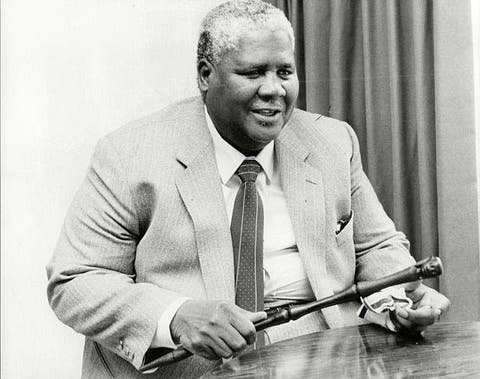On this day in 1999, Zimbabwe’s founding nationalist leader Joshua Nkomo, born 19 June 1917, died.
Over decades, he defined politics of his generation and understood the imperatives of the time.
Nkomo, 82, a co-vice president of Zimbabwe at the time and an independence fighter who helped shake off colonial rule in his southern African country, died of prostate cancer at Parirenyatwa Hospital in Harare.
Nkomo was a central player in the drama of Zimbabwean nationalism, which evolved from mild civil resistance in the 1950s and 1960s to a bloody guerrilla war in the 1970s that left 40,000 dead.
White rule in the former British colony of Rhodesia ended in 1980. Over four decades, Nkomo spent 11 years in jail and seven years in exile.
While he nurtured the image of a nationalist godfather, he failed to achieve his goal of becoming the first black leader. An arch rival and former lieutenant in the nationalist movement, Robert Mugabe, came to power when his Zimbabwe African National Union party swept to victory in 1980 in the first democratic elections.
Their uneasy alliance collapsed when Mugabe expelled Nkomo from his cabinet in 1982, accusing him of plotting a military coup, a charge the latter denied.
The move triggered a rebellion by Nkomo’s former guerrilla fighters, and a bloody civil conflict Gukurahundi ensued.
Mugabe’s government once classified Nkomo an enemy of the state, confining him to the country, confiscating his passport and monitoring his movements. But he managed to flee the country and spent five months in self-exile in Britain.
Nkomo signed a unity accord with then-Prime Minister Mugabe in 1987 that pushed his party, made up largely of the minority Ndebele tribe, into extinction.
Many applauded the move for halting fighting that was said to have caused thousands of civilians to be killed in Nkomo’s Matabeleland stronghold. Nkomo was reinstated in Mugabe’s cabinet and later was named to a largely symbolic role as one of the two vice presidents.
Washington Post













